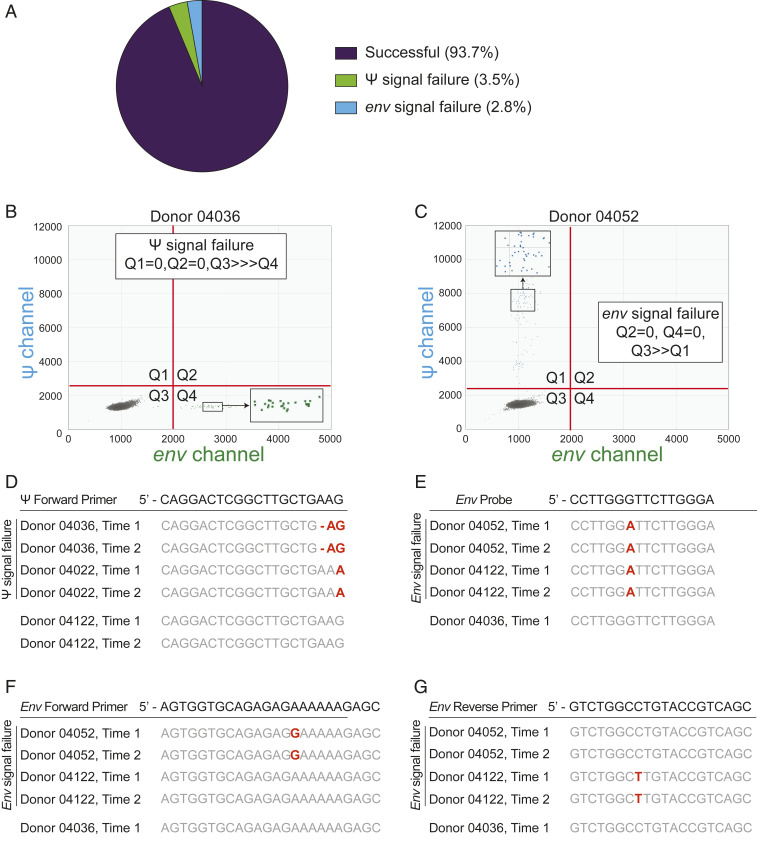Fig. 3.
IPDA amplicon signal failure due to polymorphisms in primer or probe binding sites is infrequent. (A) Frequency of amplicon signal failure for the Ψ and env amplicons. Of the 400 individuals analyzed in this study, we observed Ψ amplicon signal failure in samples from 3.5% and env amplicon signal failure in samples from 2.8%. (B) Representative 2D ddPCR plot from an HIV-1 proviral discrimination reaction illustrating Ψ amplicon signal failure. Ψ amplicon signal failure is easily identified by the absence of droplets in Q1 and Q2. (C) Representative 2D ddPCR plot from an HIV-1 proviral discrimination reaction illustrating env amplicon signal failure, which is readily identified by the absence of droplets in Q2 and in Q4. (D–G) Targeted sequencing (Methods) in individuals with signal failure revealing polymorphisms that account for a lack of signal. Polymorphisms at the 3′ end of the Ψ forward primer account for the Ψ signal failure observed in donor 04036 (B) and another donor, 04022. Donor 04052 (C) and another donor, 04122, showed normal Ψ amplification but failed env amplification. In these cases, polymorphisms in the env primers and probe were responsible. Donor 04036 showed no polymorphisms in this region and a normal droplet distribution.

